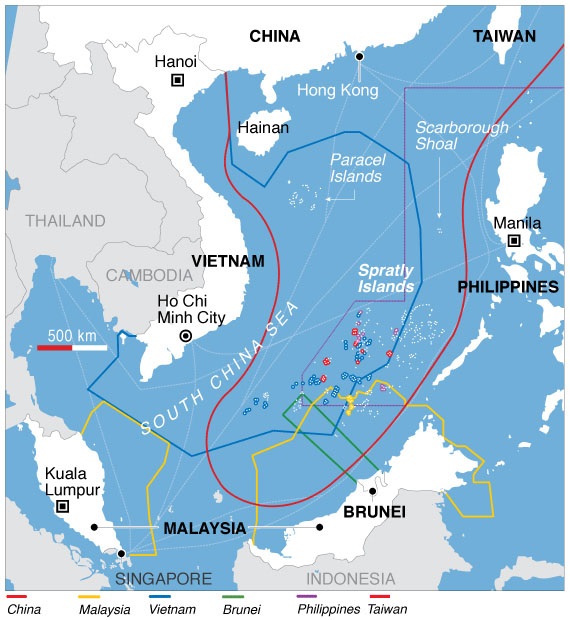On Tuesday, a US Coast Guard admiral criticized China’s activity in the South China Sea as US National Security Advisor Jake Sullivan was in Beijing to meet with high-level Chinese officials.
Rear Adm. Andrew Sugimoto, deputy commander of the US Coast Guard Pacific Area, said that the US “stands” with the Philippines in the South China Sea, where Chinese and Philippine vessels continue to have frequent tense encounters despite efforts to cool tensions.
Sugimoto’s comments came after Chinese and Philippine vessels collided near the disputed Sabina Shoal twice within a week. On Monday, the Chinese and Philippine coast guards had another confrontation near the shoal, which is part of the Spratly Islands.
Beijing and Manila traded blame for the collisions, and the US has taken the Philippines’ side. Sugimoto said the US “unequivocally” condemns China for allegedly ramming the Philippine vessels.

“China wants to be seen as a member of the world that has its set of rules and enforces it. But whenever they do things like ramming or water-cannoning unarmed vessels, it does not appear to be so,” Sugimoto said.
The US has vowed that the US-Philippine Mutual Defense Treaty applies to attacks on Philippine vessels in the South China Sea, which means the US is pledging to intervene if the dispute turns hot. Sugimoto said the US Coast Guard, which has increased its presence in waters near China in recent years, would “stand” with the Philippines if the treaty is invoked.
Over in Beijing, Sullivan began two days of talks with Wang Yi, China’s top diplomat. The Biden administration has taken a hard line on China and has framed its talks with the Chinese government as a way to “manage” the relationship rather than improve ties, and no breakthroughs are expected to be made.
“President Biden has been very clear in his conversations with President Xi that he is committed to managing this important relationship responsibly,” Sullivan told Wang before the talks began.
Wang noted the rocky state of US-China relations and said his goal is to move forward with “healthy and stable” ties. “The key is to keep the overall direction of mutual respect, peaceful coexistence and win-win cooperation,” he said.


